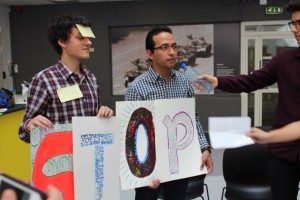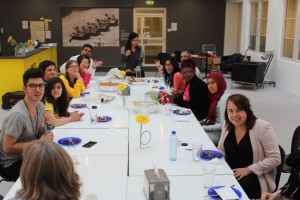On International Youth Day, Swechhya Sangroula, shares her motivations in joining the international group of young people mobilizing youth across the world to understand and take part in the Stop Torture campaign.

Namaste! My name is Swechhya and I am from Nepal – the land of diversity, and a believer of peaceful coexistence. I have lived practically all my life in Kathmandu, the capital city and I was fortunate enough not to be directly affected by the atrocities of the decade-long armed conflict in Nepal that ended in 2006 with the signing of the Comprehensive Peace Accord. It was only after the conflict ‘formally’ ended that the stifled human rights abuses raised their heads.
My passion to work against torture as an inexcusable human rights violation stemmed from one particular event when I met the mother of a girl who had been tortured and killed in detention during the armed conflict.
Swechhya Sangroula
As a law and human rights student, it dawned on me that I couldn’t remain apathetic. I realized that my legal education would mean nothing if I didn’t do my part in making the community better – if I didn’t make fighting impunity and human rights violations a guiding ethic in my life. It was in this phase of my life in 2011 that I began to get involved with Amnesty International Nepal.
My passion to work against torture as an inexcusable human rights violation stemmed from one particular event when I met the mother of a girl who had been tortured and killed in detention during the armed conflict. I came to terms with the bitter reality that fighting against torture can often seem like swimming against the tide, since on most occasions it is directly or indirectly carried out by the state or by armed groups. I was told about the opportunity to create a way for youth activists to learn more about the human rights issues and take action by Amnesty International Nepal, which proved to be a wonderful platform for me to channel my anger and frustration in a constructive way.
We all agree on a common idea that torture dehumanizes and it can be combated only through changing mind-sets.
Swechhya Sangroula
I was fortunate to be able to visit Oslo in May to work with an international group of driven young persons to develop an online guide for youth activists to get involved in Amnesty’s Stop Torture campaign. The best part of being a part of this group is the understanding that although our fight against torture is universal and freedom against torture exists as a universal human right, the methods to combat torture have to be suited to our own varying socio-economic and political contexts. I learnt that in the fight against torture, one size will not fit all. With this understanding, we worked in the group willing to accept differences and share good practices in reaching out to fellow youth to talk about human rights issues.
The human rights education ‘multiplier process’ is new for me since much of my prior experience comes from human rights campaigning and spending more time getting other people to talk about it. The best part about the multiplier process is unlearning and relearning and educating ourselves.

We believe that by uniting the voices of millions of committed young people through a human-rights based educational approach to torture, we are going to see sustainable change and create a lasting impact. We all agree on a common idea that torture dehumanizes and it can be combated only through changing mind-sets.
The process of group-building and using role-playing exercises enabled us to think of possible reactions we would encounter from diverse people, ranging from warm audiences to hostile ones. It was an important realization to know that the Stop Torture youth work is being staged in a world of unimaginable realities and differences. These exercises, facilitated by our mentors, equipped us with requisite skills to deal with multi-faceted challenges. I have now embedded these exercises into my working ethic while sharing and learning from my fellow youth volunteers. Problem-solving has been one of my biggest learnings from the workshop in Oslo where we started creating the ‘Empower against torture’ guide to develop activists’ attitudes, skills, knowledge and ability to motivate others to Stop Torture.

Now, along with the other youth multipliers, I am testing the guide in diverse communities and getting feedback so that we can constantly perfect our approach to fighting torture and get our voices heard and taken seriously by concerned stakeholders. Constant experimentation and willingness to learn shall be my plan in moving ahead.
Swechhya Sangroula, Nepal
Take the quiz: Are you a multiplier?
Learn more about how the group of international Youth Multipliers Team is creating a global community of people to stand up and take action demanding all governments put an end to torture on their blog.
Learn more about Amnesty International’s Stop Torture campaign here.

